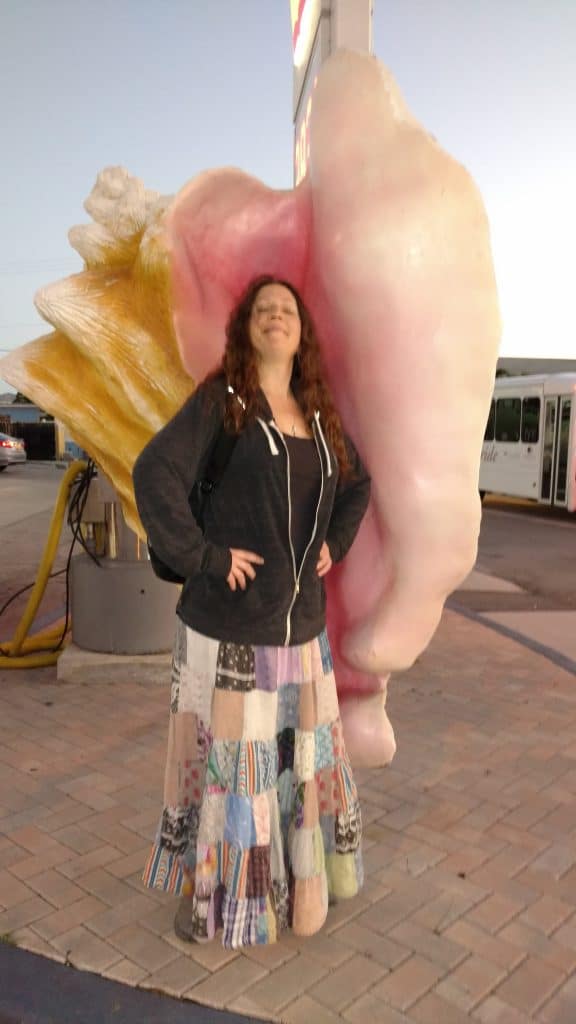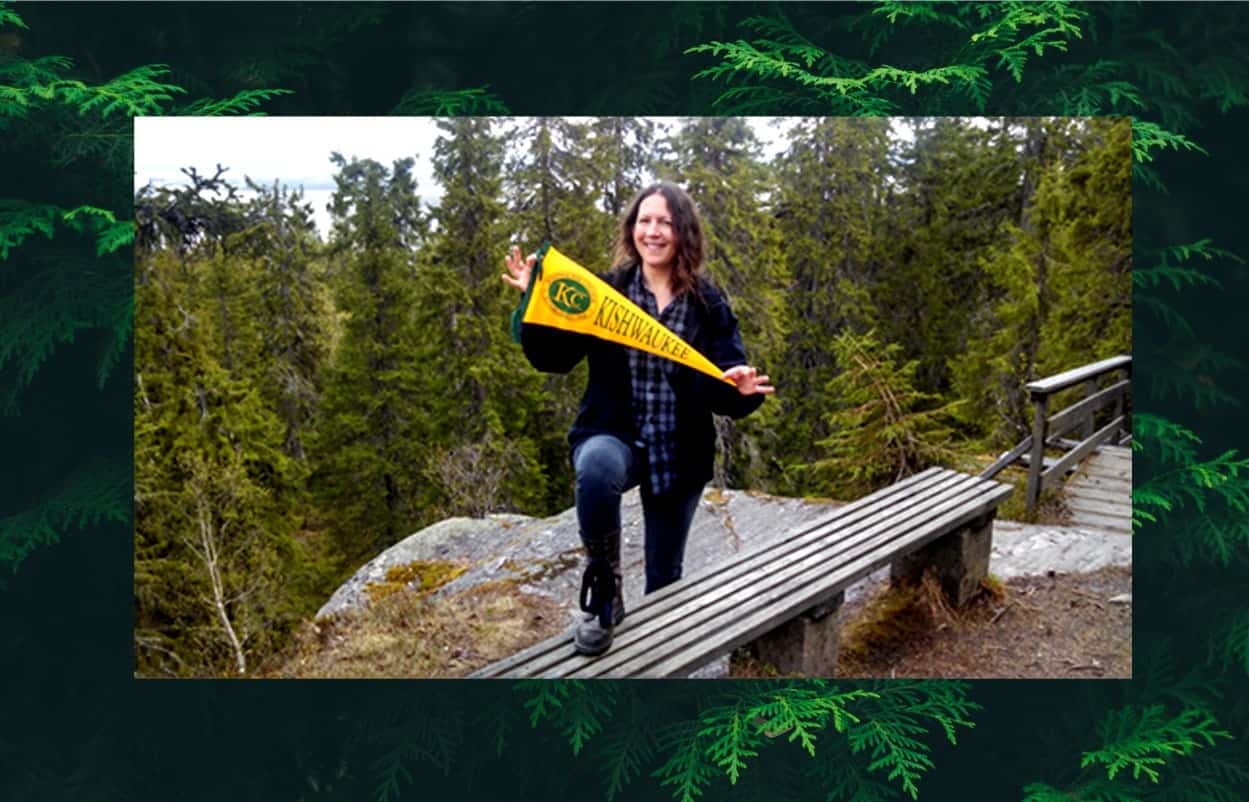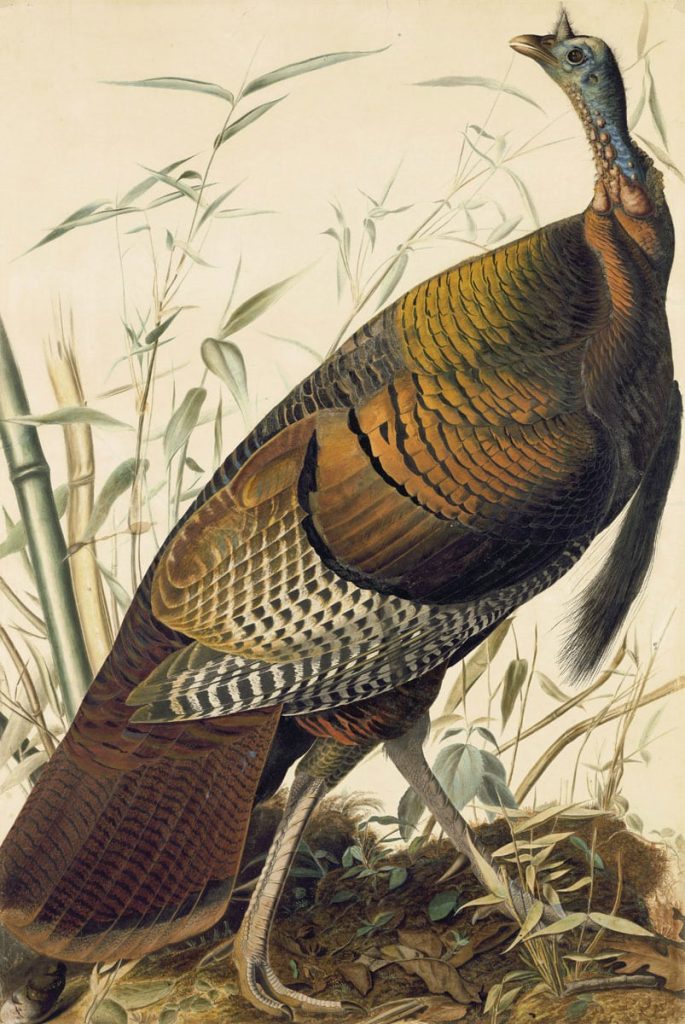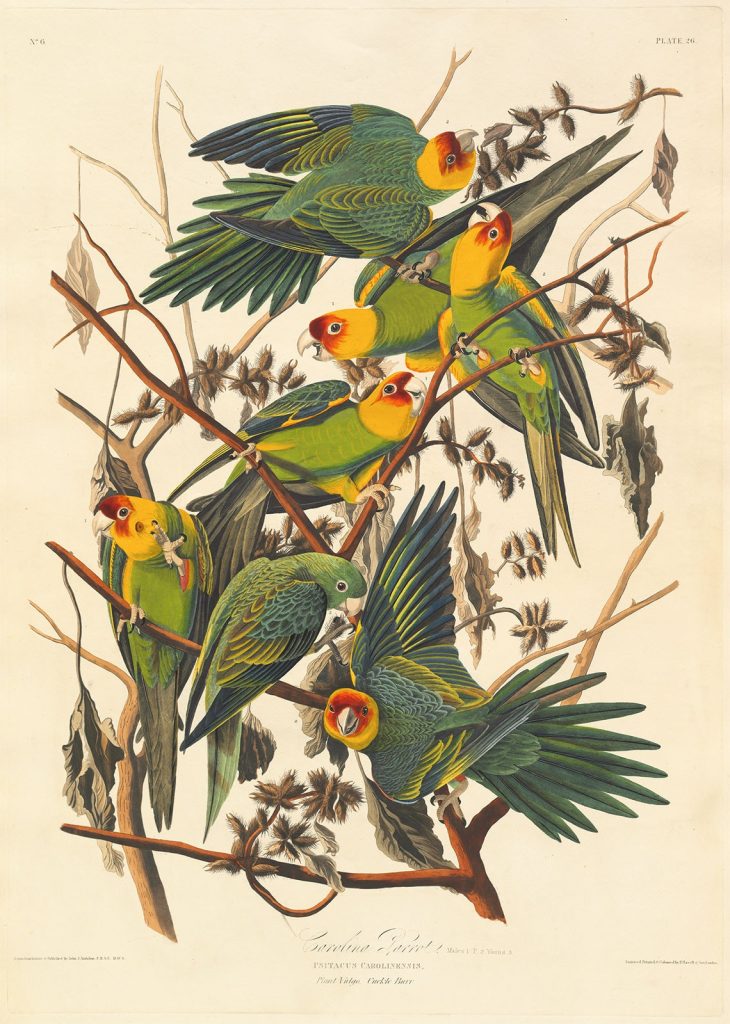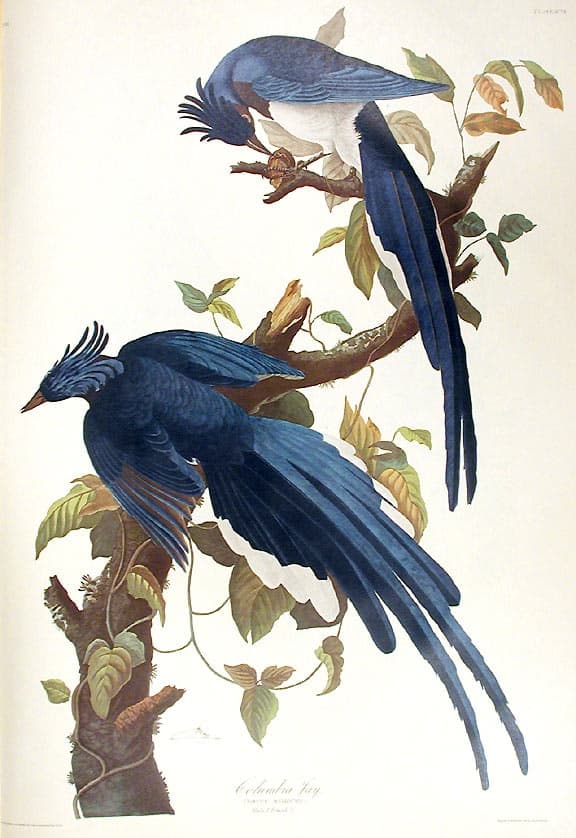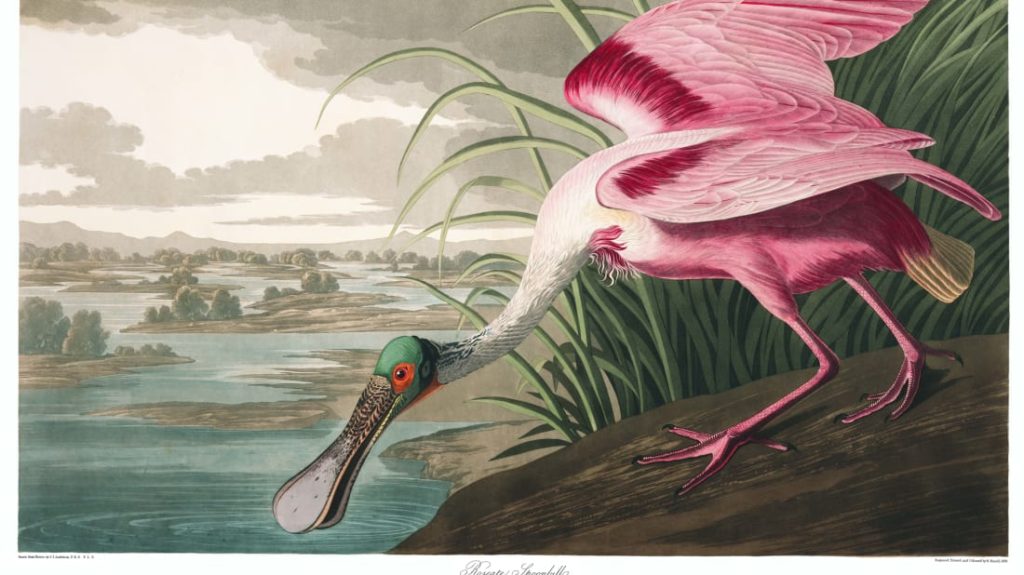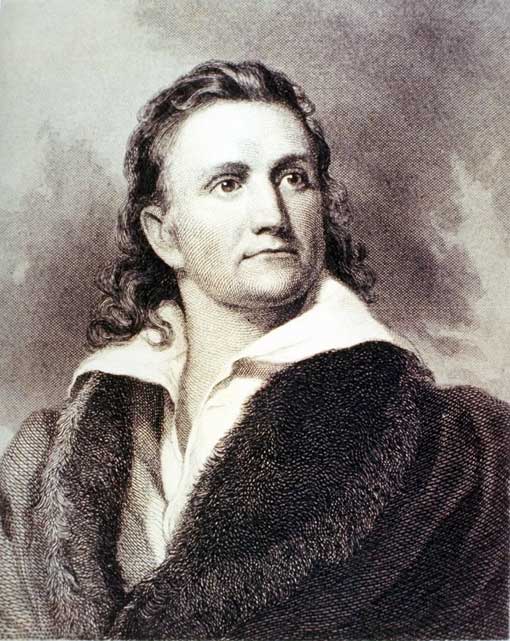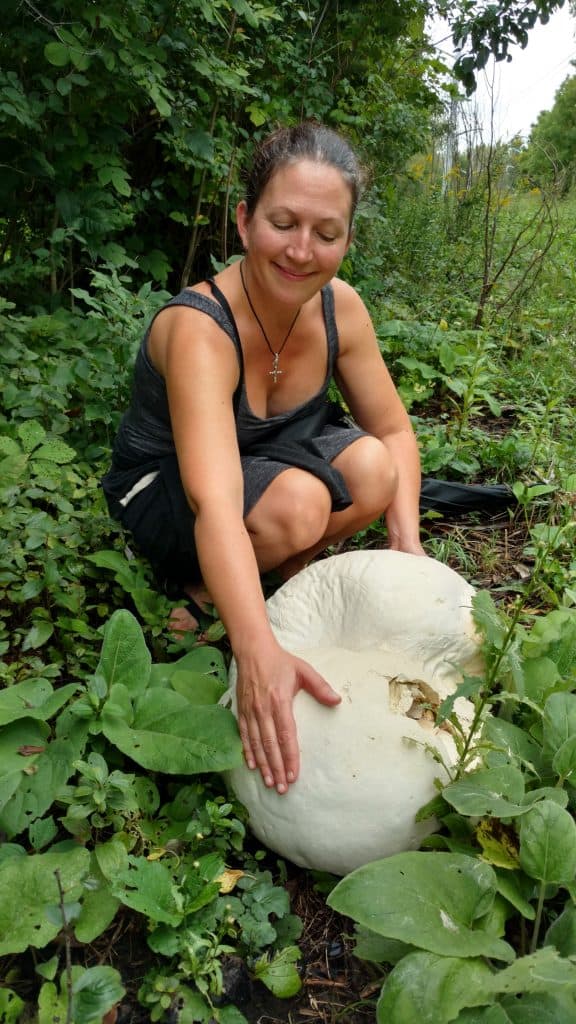
The Children’s Department is thrilled to introduce you to Tania Nezrick from Kishwaukee College’s Biology Department. Read on for some fantastic advice on how to achieve your goals and some great reading suggestions that are highlighted with blue links that will take you directly to the books in our catalogue so that you can place a hold on them. Professor Nezrick was also kind enough to make a video just for the readers of this blog! So take some time to watch all about her work, adventures, snakes, and music!
What is your name?
Tania Nezrick
What is your job title and where do you work?
I am a biology instructor at Kishwaukee College.
What do you do for a living?
My job is to teach nursing students about germs and to teach biology majors and students that want to go into the medical field about life at the smallest level (that would be molecules and cells).
If someone is interested in your line of work, what should they do to achieve their desired outcome? Is there a certain field of study or certain experiences that they should strive for?
If you are interested in living things, the first thing to do is to become a careful observer of nature. Go outside as much as possible and watch animals, listen to birds, touch and examine plants, smell the flowers. Think about why living things have the features that they have and do the things they do. How do their characteristics and behaviors help them to live their life? When you see a bug, don’t squish it! Watch it to see what it’s up to. You might start by watching the spiders that live in your house. Are there jumping spiders? Tiny spiders? Chubby spiders? Furry spiders? Look under their webs where the spiders drop their finished meals. What types of bugs have they been eating? No matter where you are or what you’re doing, pay close attention to the living world.
The second thing to do is to be a serious student. Work as hard as you can in school and if you have the chance to do extra classes, camps, or activities outside of school do as many as you can. Take as many science and math classes as possible, but also dig into the arts and humanities. A good scientist (or science teacher) should be knowledgeable about more than just science! For example, being good at art is really helpful for biologists. Being able to take a good picture of a living thing helps us to study, identify, and appreciate it, and drawing the living things we see helps us to improve our powers of observation. (For examples of great biology photos and drawings, check out the photography of John Muir and the drawings of birds by John James Audubon.) Let your teachers know what your interests are so they can help you learn as much about them as possible.
The third thing to do is to read as much as you can. Nature books like the Magic School Bus and How it Works series, Nature Cross-sections, and Golden Nature Guides are excellent. Magazines like Ranger Rick and National Geographic World are great. Don’t limit yourself just to science books though! Read about other things too. Lots of inspiring and curious ideas to spark your brain come from reading fiction, poetry, history, and other things. When you visit the library, talk to a librarian about what interests you. They will have some good books to recommend for you to read.
Finally, stay curious. Scientists never grow out of their childhood sense of wonder and curiosity!
With regards to your work, what is the most amazing or exciting thing you have ever discovered, learned, or created?
One of the most exciting things I’ve ever learned was in second grade. I had read Madeline L’Engle’s “A Wind in the Door”, and in it, Charles Wallace’s mitochondria are under siege. I asked my teacher if mitochondria were real, and learning that they did exist blew my mind. The idea that living things had all of these tiny working parts inside of them inspired in me a lifelong love of biology at the smallest scale.
What are your hobbies? Do you like comic books, manga, music, scifi? Sewing or art? Tell us what you like!
Besides loving biology, I play the violin, love to read, have lots of house plants and a garden, love hiking and canoeing and exploring outside, and enjoy cooking, sewing, and working on my old house. I also have pet snakes which are cuddly and wonderful.
Tell us something fun about yourself! A silly story, a fun thing you have done, or something you are proud of… what would you like the children and families of DeKalb to know?
I am proud of being disciplined enough as a little girl to practice my violin every day and grateful to have had the opportunity to have music class and orchestra at school. Being able to play a musical instrument has brought SO much joy to my life, and the time to learn to play is when you’re young and don’t have all of the responsibilities of being an adult hogging up your time. Over the years I’ve played in the Fox Valley Symphony, Kishwaukee Symphony Orchestra, in pit orchestras for a number of musicals, in a string quartet, with a civil war band (The Century Air Minstrels) that plays for civil war balls where everyone is dressed in period clothing, with several Irish bands, and with two rock bands. Whether it is playing bluegrass or Bach or a peppy jig, a good bout of fiddling always makes me happy.
Note from Miss Julie: Here is the video that was promised in the introduction. It is fascinating, and I certainly would love to take Professor Nezrick’s class after watching this… maybe you will get to have her as a teacher when you are older!
What are your favorite memories of the DeKalb Public Library?
My favorite memories of time spent at our library are when my son was little. We went to the library every week and played with the toys and puzzles, and got an enormous stack of books to read sitting out in the poetry garden or inside if it was cold, and took another stack home to enjoy for the week. He would always participate in the summer reading challenge and is an avid reader to this day.
Now in our new lovely library, I am looking forward to using the 3D printer to print some molecular models for my students to study. I also have enjoyed sitting in the sunshine in the atrium where the magazines are, what a great spot to sit and read!
Please list your favorite book (or books!) from when you were a child. Why did you love this book so much and how old were you when you read it?
When I was in preschool, my first and favorite books to read were the Frog and Toad series by Arnold Lobel. I loved Frog’s cheerful optimism and kindness, and how he always tries to get the grumpy curmudgeonly Toad to be happier, take himself less seriously, and live life more fully. Every day I try to be like Frog.
I read a lot in grade school, including The Adventures of Tom Sawyer and Huckleberry Finn. My favorite part in those stories is when Huck escapes down the Mississippi river first by canoe then by raft with Jim. As a little girl, I desperately wanted to have an adventure like that. When I discovered a book my parents had about the Wild and Scenic Rivers of America, I learned that there were many beautiful waterways to explore. When I went to the library, I read lots of books about wild and scenic rivers as well as other places where you could explore by paddle, like the Boundary Waters Canoe Area Wilderness and the Everglades. My parents were not outdoors people, so I had to wait until I grew up to be able to explore like that. To this day my favorite adventures have been explorations by canoe and raft. I hope that the books you read will also inspire you to have grand adventures!
What genre do you like to read now that you are an adult? Do you have a favorite author? This is a hard question! I love many types of books; science books about parasites and infectious disease are right up there along with classic and modern horror novels, but I also enjoy travel books, historical fiction, biographies, cookbooks, philosophy, history, poetry, satire, classic novels, and political analysis. All of the work I’ve done on my house I learned how to do by reading woodworking and home repair books I checked out from the library so those types of books are excellent (I would rather read about how to do something than watch a video). I also love magazines and read a lot of scientific journal articles. In the past 6 months I’ve read the entire Outlander series by Diana Gabaldon, two entertaining tales of parasites by Robert Desowitz, Richard Preston’s The Hot Zone about Ebola (just to feel better about our current pandemic…Covid-19 is bad but Ebola is so much worse), Chernow’s biography of Alexander Hamilton, and several paddling guides to the Everglades where I hope to do a 10-day canoe trip this winter, pandemic permitting.
Professor Nezrick, thank you so much for talking to us today. Your video is wonderful, and your interview was so insightful. From everyone in the Children’s Department, thank you, and we hope you have many more adventures in your future!
